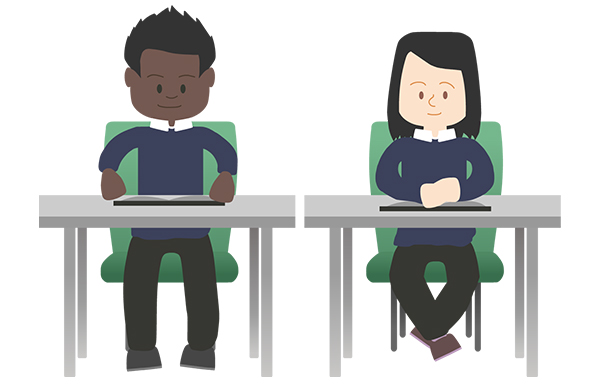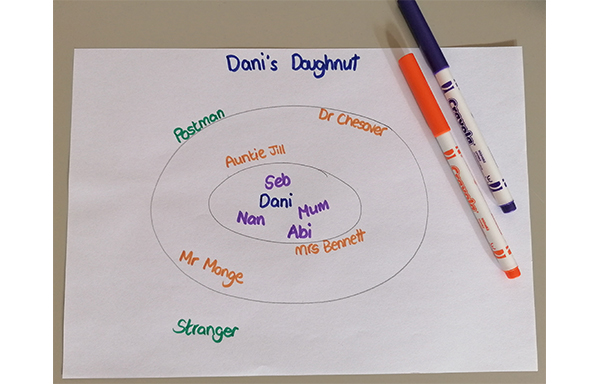Ensuring children with SLCN are included in the new RSE curriculum

From this month onwards, relationships education is compulsory in all primary schools in England, relationships and sex education is compulsory in all secondary schools, and health education is compulsory in all state funded schools. The guidance aims to ensure that all children and young people know how to keep themselves safe and healthy, and that they have the skills to be successful and happy in their academic and personal lives.
I was pleased to see that there is a section within the guidance for pupils with SEND, with the government stating that the RSE curriculum must be accessible for all, through differentiation and personalisation for children with SEND. However, there is little information about how schools can actually achieve this, for a group of children who have hugely varying needs.
The topics covered in the RSE curriculum are complex and it is easy for children to misunderstand words, concepts and ideas about relationships and sex. This is even more likely for children with speech, language and communication needs (SLCN) who are having difficulty understanding language. I have sometimes been told by parents and school staff that they have chosen not to include a child with SLCN in RSE lessons because they don’t feel that they will understand the information as it is too complex for them. Children with SLCN are already at increased risk for difficulty forming relationships, mental health difficulties and poor life outcomes. Missing out on this learning makes these children even more vulnerable to manipulation, exploitation, and social isolation. It is crucial that they have an equal opportunity to access RSE learning in order to keep themselves safe, to understand the world around them and to have healthy and happy lives.
With support strategies in place, children and young people with SLCN can be included in the RSE curriculum and here are my top tips for achieving this:
Include parents
For most children, parents are the biggest influence on their maturation and ability to form healthy relationships, with the school’s role being to build on this. This isn’t always the case, however, as some parents will need support to understand how to talk about these topics with their children at home, particularly those who have SLCN. It is important to keep parents informed about which topics will be taught and when, including information about why these topics are so important for their child’s health and wellbeing. Provide examples of resources and activities that you are using in school, including key vocabulary, so that parents can continue conversations started in class at home.
Create a safe learning environment
When teaching RSE, it is important that teaching staff create an atmosphere that encourages openness, so that children feel they can ask questions and get involved in discussions. Children with SLCN will have lots of times in the classroom when they do not understand what has been said. In order to engage with learning, particularly with the complex topics in RSE, it is crucial that children are able to identity when they don’t understand and have the confidence and skills to ask for help. You can use visuals, such as confidence indicators, to support children to be able to show if they understand or need more help within the classroom. It is important to openly discuss that we all have times when we don’t understand and that when this happens, we can ask for help.
Visuals, visuals, visuals
As I have said, the RSE topics are very complex and abstract, with lots of new vocabulary and concepts that children need to understand and be able to use. It is essential that spoken information is supported by visuals such as pictures, videos, mind maps and vocabulary books so that children with SLCN can more easily make sense of this information. When working on relationships I often use a ‘doughnut’ to support children’s understanding, with people nearest the centre being closer or better known to the child. You can make this task as simple or complex as you like; you could include information about appropriate physical contact for the child with each person, talk about different attributes each person has that make a good (or not so good) relationship or help them to understand key vocabulary like ‘family’, ‘stranger’ and what a ‘friend’ is versus an ‘acquaintance’.

Comic strip conversations are a great way to help children with SLCN to understand a sequence of events and how their actions impact on others. You can draw out an event in a comic strip style as it occurred and add information about the characters’ thoughts, feelings and actions. This can help children to understand what is expected of them in different situations, the best ways to form healthy relationships and supports understanding and development of social communication skills.
Make links
Explicitly make links between topics, ideas and vocabulary used within RSE lessons to other lessons and activities within the school. During English, you could analyse the relationships of characters within stories and discuss the characteristics of healthy and not healthy relationships. In PE you could discuss the importance of exercise and its benefits on mental health and wellbeing. In IT you could talk about how to keep safe online and the importance of this. Bring vocabulary and concepts that you have been working on into the child’s everyday activities, for example, you could praise a child for demonstrating positive friendship qualities that you have been talking about, e.g. ‘you were being very kind to Sadi by picking up her pen for her’. The more you use new vocabulary and concepts in different situations and contexts, the more efficiently the child will be able to understand them.
Self-regulation skills
Children with SLCN can present with challenging behaviour, usually as a result of the frustration of not be able to understand and express themselves successfully. Supporting children to recognise how they are feeling (e.g. using an emotions wheel or five-point scale) and identifying strategies that make them feel better (e.g. having time out of class in a safe space to cool down or having jobs to do in the classroom) can support the development of their self-control and ability to self-regulate. This will underpin the skills they need to be able to deal with problems and challenges as they arise in life more calmly and rationally.
For more information about teaching relationships, health and sex education in schools visit:
NSPCC RSE Resources for Schools: https://learning.nspcc.org.uk/research-resources/schools/relationships-health-and-sex-education-resources
NSPCC PANTS rule: https://learning.nspcc.org.uk/research-resources/schools/pants-teaching
PSHE Association Programme of Study (KS1 - KS5) https://www.pshe-association.org.uk/curriculum-and-resources/resources/programme-study-pshe-education-key-stages-1%E2%80%935
Every Mind Matters (Upper KS2, KS3 and KS4): https://campaignresources.phe.gov.uk/schools/topics/mental-wellbeing/overview
Rise Above Resources (KS3 and KS4): https://www.pshe-association.org.uk/curriculum-and-resources/resources/rise-above-teaching-resources